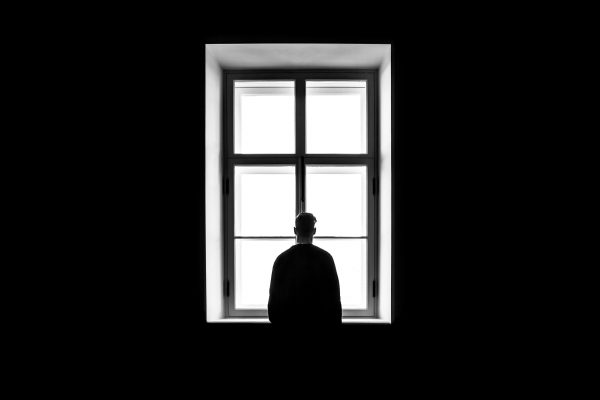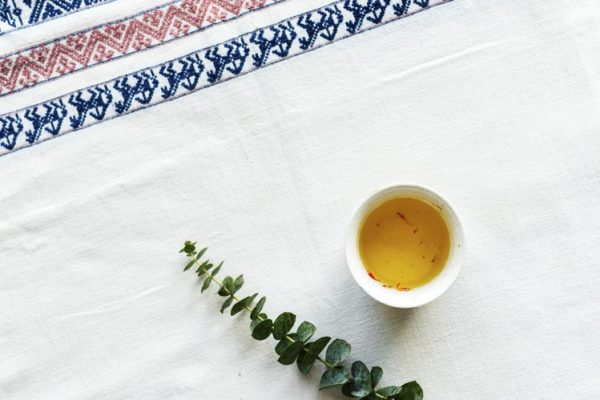I was becoming more and more convinced, as every day passed, that I was a good person, that Allah does loves me, and that I am able to take back control of my life.
I was becoming more and more convinced, as every day passed, that I was a good person, that Allah does loves me, and that I am able to take back control of my life.
Where to start?
You constantly feel on edge and very tense; when are they next going to kick off? It’s constantly gauging someone’s body language and trying to detect the slightest sign of displeasure. There is always a specific procedure your household may take to minimise the displeasure of the abuser or maximise damage control. You are constantly in this hyper-vigilant state that leaves you mentally and physically exhausted. When things go silent, your heart beats so fast and hard you can almost hear it.
You think when will this stop?
When will the day come where you don’t have that sick turning feeling in your stomach as you dread coming home?
When will the day come when you can peacefully sleep without worrying about if a fight is going to break out; if you need to protect someone else from the aftermath?
When will you be able to be around people without flinching at the slightest sudden movement or wincing when someone is too loud?
Although this may sound like that from a horror movie, it is the unfortunate reality for victims of domestic abuse, myself included. I grew up witnessing and being subject to emotional, mental and, at times, physical abuse. It was a very long and stressful period of my life where as a result, I developed severe depression and anxiety. This was heightened when I first started university as I was trying to stay on top of my studies.
My situation at home was not something I really spoke about in depth. I would often make jokes of how ‘crazy’ my dad was and usually brushed incidents under the carpet because I knew what was happening was wrong but didn’t know how to challenge it.
For me, it was the norm. Everyone must have crazy and strict fathers… right? I mean, no one ever had parents who ACTUALLY liked each other. What else were parents for except to have complete and utter authority over their child’s life and instill fear in them to ensure total obedience? Reality. My reality.
Most of the abuse was mental and physical and not regularly directed at me, so naturally, I felt that what I was going through wasn’t a valid problem or that my worries were not legitimised. I would always tell myself at least he doesn’t drink, at least he doesn’t sexually abuse me, at least he doesn’t beat me regularly. These are all things I should be incredibly grateful for. I felt stuck in a grey area where I thought that although the abuse was bad, it wasn’t bad enough to warrant concern.
The Great Taboo vs My Mental Wellbeing
It goes without saying the subject was too much of a taboo to open up about in my community. On the one hand, parents are really revered in Islam, so I could not help but feel by complaining about my situation I was going against the teachings of Islam, and adding to the taboo. On the other hand, religion was used as a control mechanism, so I associated Islam with tyranny. This, at times, was the root cause of deeply conflicting questions about Islam; if this is what Islam is about then what’s the point of me being Muslim?
Having been diagnosed with severe depression and anxiety, it left me constantly experiencing a rollercoaster of emotions that I couldn’t explain, understand, or manage. I found it so challenging to do everyday tasks such as making sure I eat or even just get up and go to the toilet. My depressive episodes would last for weeks at a time where I would be very negative, down, and unproductive. I would have at least 4 panic attacks per week, often triggered by a specific event and others randomly. “How embarrassing” would go through my mind again and again because dealing with it was alien to me. I would have complete meltdowns and be very vulnerable to whoever was there at the time with me. I often hated how I couldn’t get a grip and just “suck it up”.
I felt so powerless.
I felt so done with everything.
Sleep was my drug, I would come home from university and sleep for a few hours, wake up, and try to eat then go back to sleep. I always felt exhausted no matter how much sleep I had. Even though my sleep was restless and often interrupted it was the closest thing I had to numbing myself and coping without turning to haram means of attaining numbness, something I did seriously consider.
The Link Between Mental Illness & Spirituality With Psychotherapist Berak Hussain (Podcast)
I only started to feel legitimised and validated when I opened up to an older friend who had a very similar experience to mine. It was then that I realised that I need to get help because I could not carry on living like this anymore. It was affecting me in ways that were beyond fathoming. Very bleak thoughts would too often come to me. One example was going ‘off-the-rails’ and rebelling, without reason.
The most distinct memory I have was one that was the final trigger which forced me to seek help. I was sleeping, and a neighbour was a having a loud conversation outside. I woke up in sheer panic and fear thinking that a fight has broken out at home. I started having palpitations, heavy and fast beating, and gasping for air as if I had just been strangled. Enough was enough. I could not let all that held me back win. My mental wellbeing was in dire need. I needed to make choices in my life to get better.
Attaining Help
My first step began by getting in touch with the university counselling service. I was very apprehensive to begin, simply due to the fact that the service offered is by non-Muslim counsellors, however I couldn’t afford to be picky. I was just so grateful for any means of help.
Counselling was challenging from the start. I’ve never really been asked probing questions or questions about how I felt, so it was new experience for me. To sit in front of someone every week and dredge up fossils of my past was difficult. There was also a sense of censorship as I was worried I would portray a bad image of Islam and Muslims to the counsellor.
After a few months, I slowly started noticing changes in my life. My panic attacks were less frequent. My depressive episodes were shortening. I found my voice and started standing up for myself in situations that I never thought I could. Although my family life didn’t improve, as in fact after the counselling it got worse, the difference was that I felt equipped with tools to manage it. Most importantly though, I started to love myself. I was becoming more and more convinced, as every day passed, that I was a good person, that Allah does loves me, and that I am able to take back control of my life.
Allah
I was blessed enough to embark on a spiritual journey of healing at the same time as my mental wellbeing journey. During this time, I tried to educate myself about my faith, but by this time tackling the misconceptions I had. I wanted to find out what Islam actually said about women. Are the beatings justified? Is a woman’s place confined solely to the home? I read about the life of our beloved Prophet (ﷺ) and how he never raised his voice or rebuked against members of his household and always treated them with love, care, and compassion.
Anas ibn Malik said, ‘I served the Prophet (ﷺ) for ten years, and he never said to me, “Uf” (a minor harsh word denoting impatience) and never blamed me by saying, “Why did you do so or why didn’t you do so?”’ (Saheeh Muslim).
One by one I started challenging the false narratives of Islam that I was force fed and slowly began to fall in love with the beauty and simplicity of the religion. That’s when my bond with Allah really strengthened. I started talking to Him like a friend, I confided my everyday struggles in Him, I cried to Him night after night begging for ease and a way out. He was there. He was always there.
It completely changed my perspective on what a relationship with God should be like. I learned that He loved me, I learned that He was giving me a test I could bear, and most importantly, I learned that He has my back; so I took a step back and trusted Him. I learned that putting my trust in Allah meant that I had to do everything I could to resolve the issue; then leaving my heart in His hands with full faith that He will create a way out.
You Are Not Alone
Everyone has different experiences, and my road to recovery might be completely different to yours. I just hope by sharing a glimpse of my story it helps anyone going through a similar situation to know that you are not alone and there is help out there. You are not living in a lawless land, help and support is available for Muslims of all ages. Reach out, talk to organisations and trusted friends. Get elders in the community involved, an influential auntie or uncle, an imam or a religious leader. If you feel your situation is more serious don’t be afraid to get social services or the police involved. Your safety and wellbeing are important.
Finally, I will leave you with an Ayah that often puts a lot into perspective for me when I was stuck in a dark hole and made me realise how much Allah actually loves me, and that my tears of anguish were not in vain.
“And if any of My servants ask you [Oh Muhammad] about Me, indeed, I am near; I respond to the call of the caller when he calls Me. Let My servants answer My call and believe in Me so that perhaps they may be rightly guided” (Surah Baqarah Verse 186).
Read the original article from The Aafiyah Project here.





